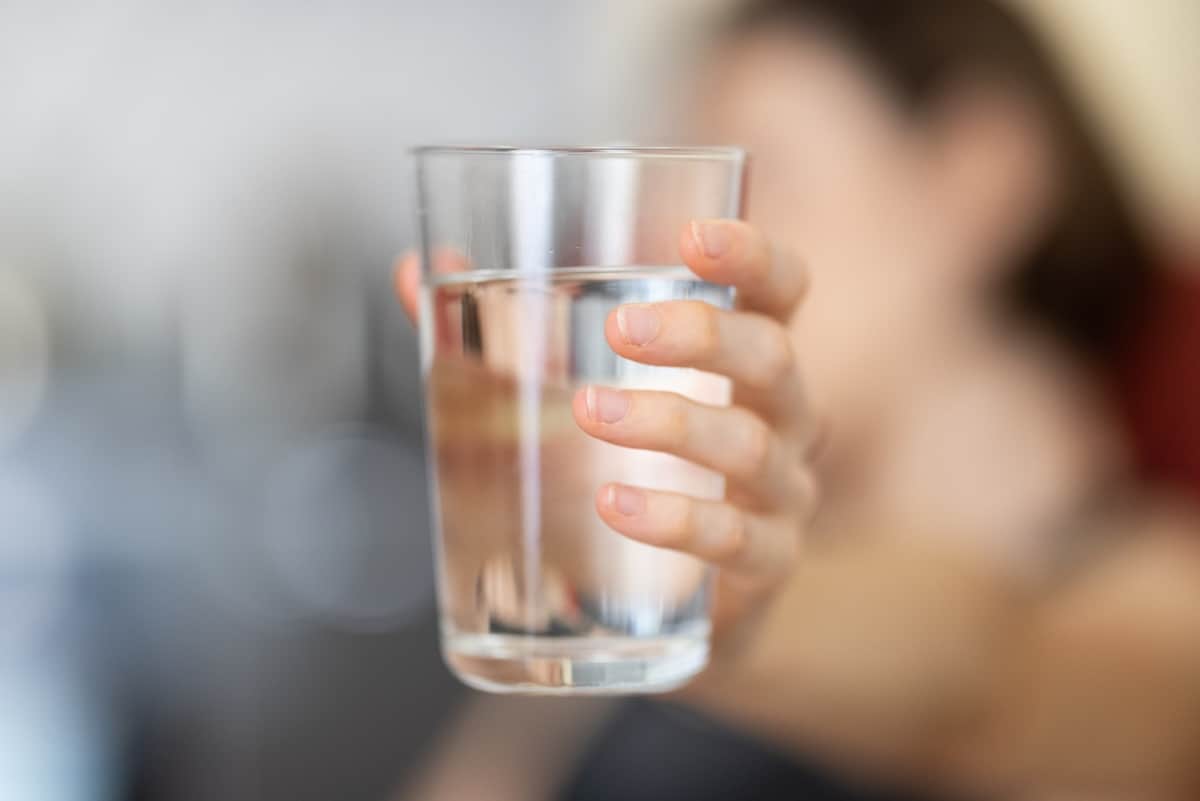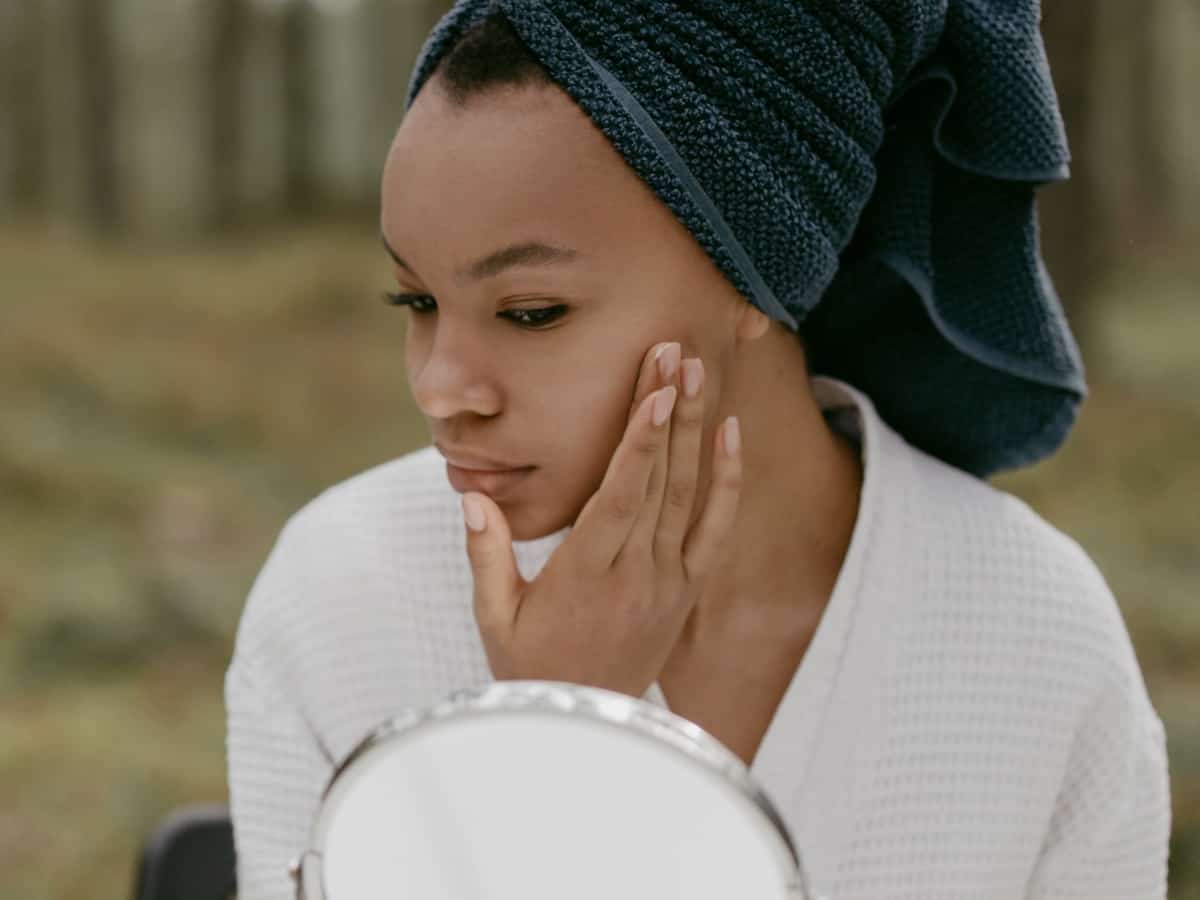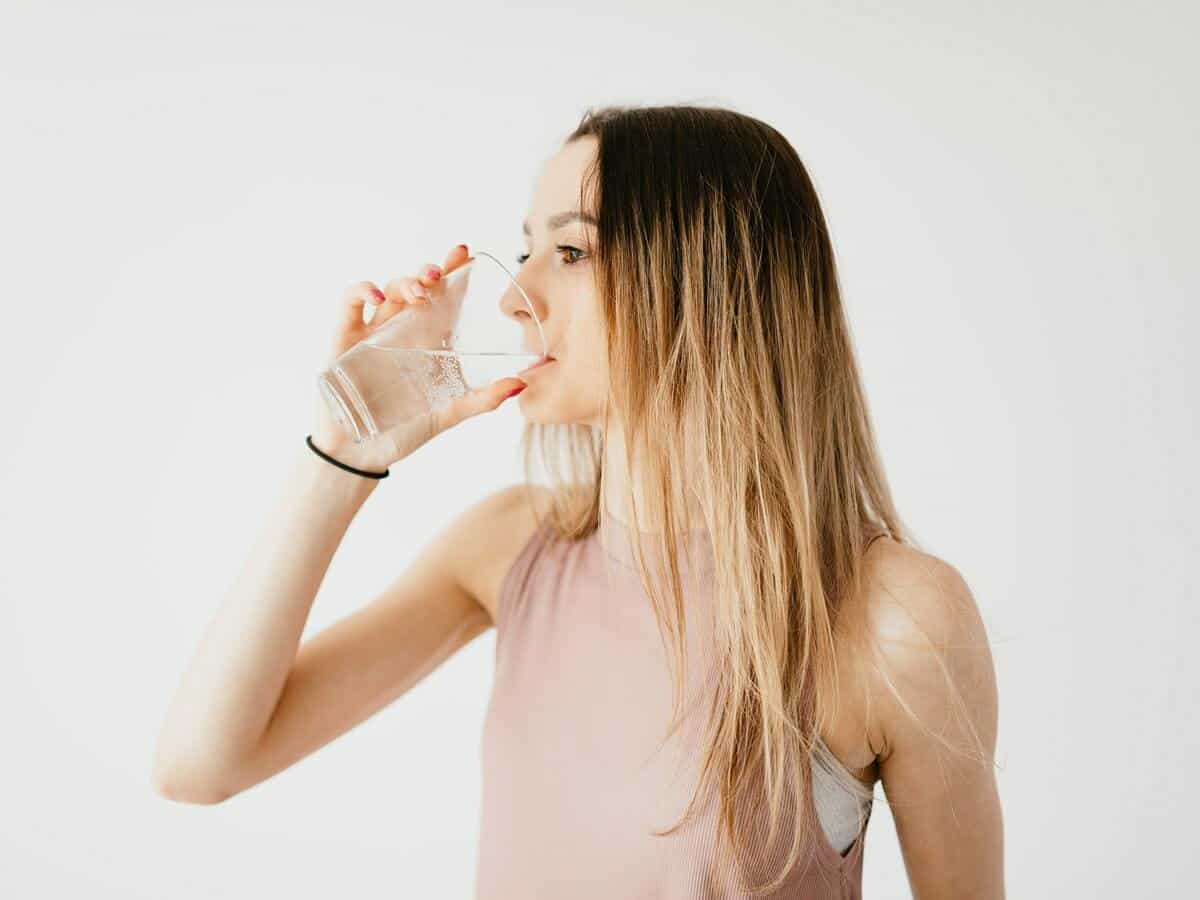You may have heard the statement “Drink plenty of water, it’s good for you.” It’s not just a fad. Drinking water every day helps you stay hydrated and maintain your health. Many people who are into beauty believe water is a magic potion for healthier, supple, and more radiant skin. But, does drinking water clear acne and improve the appearance of your skin?
Facial acne can cause you to feel stressed or feel less confident about your appearance, so finding a healthy solution can be relieving, even if it means chugging water. Continue reading to learn what the experts have to say about drinking water to improve acne.
What Is Acne?
Acne, also known as “zits” is a common skin condition that occurs when the hair follicles under your skin become plugged with oil and dead skin cells. An acne outbreak looks like small lesions that appear mostly on the face, shoulder, back, or chest. The skin condition also causes pimples, blackheads, whiteheads, and painful cysts to form on your skin.
What Causes Acne?
The main cause of acne is an overproduction of sebum, an oily, waxy substance that’s needed to keep your hair and skin moist. Sometimes bacteria infect the clogged follicles and cause inflammation that leads to papules, pustules, nodules, or painful cysts developing on the skin. Other causes of the skin condition include hormonal changes, stress, and certain medications.
How Is Acne Treated?
Many people break out with acne during puberty, but it often clears up by the time they’re in their 30s. However, some people continue to get acne way into their 40s and 50s. Ongoing acne can be annoying, especially since there’s no cure. However, dermatologist-recommended treatments are available over-the-counter (OTC) and by prescription to control and reduce breakout frequencies.
Common treatments include oral antibiotics and topical creams, lotions, and gels containing benzoyl peroxide. Treatment generally works by unclogging your pores. People with moderate to severe acne may need prescription drugs to clear bacteria, inflammation, and excess oil.

Does Drinking Water Clear Acne?
Water, or H2O, contains many natural minerals, such as calcium, magnesium, sodium, and zinc, that are needed by the body and skin. It has many benefits, but you’re likely reading this post because you want to know, does drinking water clear acne?. There are claims that a healthy diet, drinking water, and an acne-friendly skincare routine can promote clearer skin. But there is no clear or definitive evidence that it can directly minimize acne breakouts. Water may indirectly help improve acne in the following ways:
Boosts your Immune System’s Ability to Fight Acne Bacteria
Studies found that staying hydrated helps boost your body’s overall immune system function. A healthy immune system can fight off harmful bacteria that make acne and pimples form. Researchers believe the most common type of acne, called acne vulgaris, is caused by a bacteria strain called C. acnes (Cutibacterium acnes). Acne vulgaris is also linked to hormone fluctuations.
Washes Away Bacteria from your Skin
Research findings also support the benefits hydrating with water has on your skin from the outside. Water washes away bacteria and toxins from your skin. It also protects the skin from drying and breaking and prevents bacteria from entering your pores and causing a breakout.
Promotes Skin Renewal
Keeping your skin moisturized by drinking plenty of water promotes skin rejuvenation and collagen production. Skin repair and renewal help reduce inflammation associated with acne pimples, facilitate skin healing, and reduce the appearance of scars.
Tip: For optimum hydration, you may need to increase your water intake. That’s because your body circulates water to all your other organs first before hydrating the skin. It seems unfair, considering the skin is the largest body organ.

How Is Drinking Water Crucial to a Skin Care Routine?
This is another question that tends to pop up alongside, “Does drinking water clear acne?” Normal skincare routine involves cleansing, moisturizing, and applying sunscreen lotion to protect against UVA and UVB radiation from the sun. So what does drinking water have to do with it?
Consuming adequate amounts of H2O every day contributes to healthier, well-hydrated skin. A 2015 study published in Clinical, Cosmetic, and Investigational Dermatology confirmed the link between water consumption and healthier skin. The researchers noted that water intake had a positive effect on the appearance of the skin in those who were already dehydrated.
The circulation process to the skin is likely hindered if you’re dehydrated since your skin is last to be served with H2O. At the same time, if you’re already well hydrated, more water intake may not have any additional impact on your skin.
What are the Beauty Benefits of Drinking Water?
Not everyone likes water and for good reasons. It’s colorless and tasteless. But filling up with H2O not only quenches thirsty skin but also provides a range of other beauty benefits. Here are some of water’s top, best-kept beauty secrets:
- Gives your skin a natural glow: Whether you sip or chug down your water, enough of it can have people asking why you’re glowing. Tell them it’s your water secret. Water flushes out toxins that cause dull skin, leaving you with a refreshed, glowy appearance.
- Fights aging: Aging brings with it fine lines and wrinkles. Skin dryness and tightness may also increase. Water may help you turn back the clock on your age by enhancing skin suppleness and maintaining skin elasticity. Increased elasticity reduces the appearance of fine lines and wrinkles.
- Heals sunburn: Having a good time soaking up the summer sun comes at the cost of sunburn. While Aloe Vera is known to help heal sunburn, turning to water can speed up the healing process.
- Strengthens your nails: Have brittle nails and can’t think of a solution? Weak, flaky nails may be a sign of persistent dehydration. Sipping on H2O can help promote healthy nail growth and prevent dry cuticles.
- Minimizes hair loss: Another reason to make water your new BFF is to slow hair loss. Your hair is made up of water, so not consuming enough can leave it dry and thirsty. There you have it, another practical tip for getting long, luscious, healthy hair.
How Much Water is Good for Your Skin?
As a general rule, one gallon of water (16 cups) a day can keep dehydration away. Experts say 13 cups of water for men and 9 cups for women is sufficient, give or take a cup or two. You’ll still get additional fluids from fruits, vegetables, and juices to boost hydration.
If your water consumption is on par with the recommended intake, you still need to balance it against foods, such as fiber-rich foods, caffeinated beverages, and alcohol, that contribute to dehydration. You also need to balance it against water loss through the skin from heat (hot climate) and sweat as well as from urine. The more active you are or engage in exercise, the more water you’ll need to stay fully hydrated.
What Happens If You Overdrink Water?
Now that you’ve pretty much got your answer to “does drinking water clear acne?” try not to go overboard. While water is essential for health, guzzling down too much to get clearer skin or boost your immune system’s ability to fight bacterial acne isn’t helpful. Excessive intake may result in a condition called water intoxication. Too much water in the body dilutes beneficial salts and electrolytes needed for it to function properly. Loss of electrolytes causes a condition called hyponatremia that can put your health at risk.
What Type of Water is Best for Your Skin?
Drinking water is key to beautiful skin, but not just any water. There are different types of drinking water, including tap, spring, distilled, purified, mineral, sparkling, and alkaline water. They’re not all created equal and consuming purified water can make a difference to your skin’s health.
Drinking and bathing with tap water may be harmful to your skin and body if it’s contaminated with harmful pathogens, toxins, and pollutants. Bacteria, viruses, lead, arsenic, and pesticides can enter your body and weaken your immune system. Consequently, skin problems such as dry skin, eczema, and acne can occur.
Purified Water and Your Skin
Installing a water filtration and purification system will help filter, clean, and purify your water. The system is designed to remove pollutants and harsh chemicals, such as chlorine and chloramine, from your water and make it safer for consumption. Treated water also reduces the chance of dry skin and skin irritation that may lead to acne breakouts or hair damage. Meanwhile, you’ll save a ton of money in the long run from not having to buy bottled water.

Cleanse Your Body and Skin with the Best Water Ever
Drinking clean, filtered water helps protect your body from pollutants and harsh chemicals that can cause skin irritation and acne breakouts. At ONIT Home, we specialize in installing home water filtration systems that use reverse osmosis to clean your tap water! We even offer UV light purifiers to add to your system to ensure that you’re getting the best quality water possible.
To find out more, visit us online or give us a call today at 1-833-433-0331!



